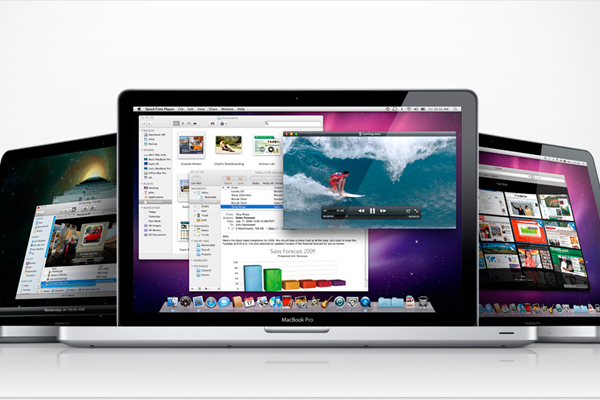Five tech sectors staring into the abyss
The end is nigh for some areas of the tech industry. We look at which ones could be six feet under in the not too distant future.


Sign up today and you will receive a free copy of our Future Focus 2025 report - the leading guidance on AI, cybersecurity and other IT challenges as per 700+ senior executives
You are now subscribed
Your newsletter sign-up was successful
Back in the 1990s, the firewall was being touted as the answer to all our security problems. It's clear now that our belief in the technology as an effective protector of the corporate network was somewhat misguided.
Whilst they remain semi-useful, standard firewalls simply cannot protect against the myriad threats that organisations face today.
"The type of threats we are seeing around at the moment are not hindered by the firewall at all," Mark James, technical manager at ESET UK, told IT PRO. "The majority of infections we are dealing with at present tend to be delivered in such a manner that having a firewall or not has no bearing on the threat being installed. User education is much more effective than a firewall in these situations."
Admittedly, it would be a surprise to see the firewall completely disappear, but people have been talking about its demise for some time now.
James' colleague David Harley, senior research fellow at ESET, said it is unlikely the final nail in the firewall's coffin will be hammered down in the near future. However, he suggested it's likely the industry will see fewer basic desktop firewalls and perhaps even less industrial strength devices around the gateway.
"At all levels, protection is much more about multilayering nowadays than it is about single defensive layers, whether it's at the desktop or further back into the cloud," Harley added.
If firewalls are to survive, it may need adoption of next-generation firewalls (NGFWs) to ramp up fast. These systems offer more than your standard firewall, in particular the ability to detect application-specific attacks. They can also allow IT admins to enforce granular security policies around application use, on top of packet filtering.
Sign up today and you will receive a free copy of our Future Focus 2025 report - the leading guidance on AI, cybersecurity and other IT challenges as per 700+ senior executives
This kind of application management has just not been available on legacy firewalls.
Gartner recently predicted the installed base of NGFW will increase to 35 per cent by 2014, so uptake could be set to spike very soon.
Nevertheless, it'd be fair to say the firewall of the 1990s, with its limited application awareness, is on life support and it'll be time to pull the plug soon.
Landline phones
There's some decent evidence out there pointing to the death of the landline phone. First off, not using one can save businesses money.
A plethora of alternative services are out there that give you connectivity, from VoIP to the simple use of a company mobile. Not only do they allow businesses to make cheaper calls, they mean workers can be anywhere and keep connected with both customers and coworkers.
During a recent meeting at IT PRO offices, Vodafone showed us how unified communications was negating the need for a landline phone. Instead, companies can use a mix of mobiles and 3G desk phones for all their calls.
Businesses can simply move their fixed line numbers over to Vodafone, as part of the One Net Express deal, and have a setup where workers can use that same number across as many devices as they choose. Of course, employees can still use their own mobile number, but as many customers value locality, the ability to use faux landline numbers could provide real value to a business. Well, according to Vodafone at least.
Tom Brewster is currently an associate editor at Forbes and an award-winning journalist who covers cyber security, surveillance, and privacy. Starting his career at ITPro as a staff writer and working up to a senior staff writer role, Tom has been covering the tech industry for more than ten years and is considered one of the leading journalists in his specialism.
He is a proud alum of the University of Sheffield where he secured an undergraduate degree in English Literature before undertaking a certification from General Assembly in web development.
-
 Stop treating agentic AI projects like traditional software
Stop treating agentic AI projects like traditional softwareAnalysis Designing and building agents is one thing, but testing and governance is crucial to success
-
 PayPal appoints HP’s Enrique Lores in surprise CEO shake-up
PayPal appoints HP’s Enrique Lores in surprise CEO shake-upNews The veteran tech executive will lead the payments giant into its next growth phase amid mounting industry challenges
-
 Hackers accused of holding iPhones & iPads to ransom detained in Russia
Hackers accused of holding iPhones & iPads to ransom detained in RussiaNews Police search apartments following arrest
-
 Cisco to tackle BYOD challenge
Cisco to tackle BYOD challengeNews Networking vendor aims to help companies secure and control personal devices.
-
 Enterprise security shoot-out: iPad vs. Android
Enterprise security shoot-out: iPad vs. AndroidIn-depth Davey Winder investigates the relative IT sec pros and cons of iOS and Android tablets…
-
 UPDATED: Apple iOS JailBreakMe flaw raises ‘security concerns’
UPDATED: Apple iOS JailBreakMe flaw raises ‘security concerns’News Apple is yet to fix a flaw used by the JailBreakMe crew to allow users to run non-approved apps on the iPhones, iPads and iPods.
-
 Week in review: Windows 8, China loves Gmail and mobile phone radiation
Week in review: Windows 8, China loves Gmail and mobile phone radiationNews Windows 8 is coming! But when? The Chinese hack Gmail! Or did they? Mobile phones cause cancer! Or do they? It's been a very confusing week...
-
 Mac OS vulnerabilities skyrocket
Mac OS vulnerabilities skyrocketNews Mac OS vulnerabilities have risen by over five times, leading Panda Security to launch an anti-virus product for the operating system.
-
 Week in review: Virus hits Iran nuclear power plant, Ballmer bonus woes
Week in review: Virus hits Iran nuclear power plant, Ballmer bonus woesNews The past week was filled with intrigue, action and big money as a virus hits an Iranian nuclear power planet, the British police crack down on the Zeus online bank thieves and Microsoft CEO Steve Ballmer misses out on a wad of cash.
-
 AT&T iPad hack exposer breaks gag order
AT&T iPad hack exposer breaks gag orderNews A Goatse Security member who helped publicise an AT&T website vulnerability opening up iPad user data has claimed his civil liberties have been "grossly violated".
